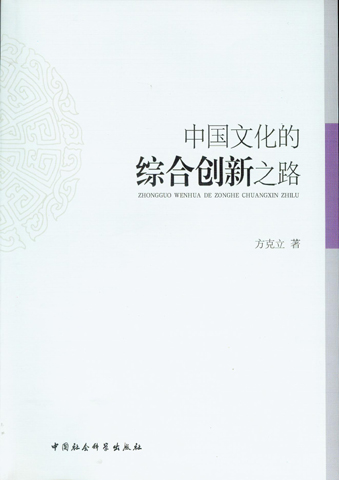A Path to Comprehensive Innovation of Chinese Culture

Fang Keli's A Path to Comprehensive Innovation of Chinese Culture was published by China Social Sciences Press in September, 2012. Yang Qingzhong, a professor at the School of Chinese Classics at Renmin University of China, appraised A Path to Comprehensive Innovation of Chinese Culture as providing a broadening, but not disorienting cultural view. Yang added that Fang’s work is another inspiring read after his 1997 title Modern Neo-Confucianism and China's Modernization. Through a selection of 47 academic articles written in the past ten years, A Path to Comprehensive Innovation of Chinese Culture reflects Fang’s grasp of contemporary trends as he explores modern values of Chinese philosophy and culture, their development path, and the place and meaning of Marxism within them.
Fang had already begun to examine the potential direction of Chinese philosophy and culture from a methodological standpoint in his book Modern Neo-Confucianism and China’s Modernization. Fang further built upon the theory of comprehensive innovation developed by the late Zhang Dainian, famous professor of philosophy at Peking University, and taking it a step further to conclude “make the past serve the present and make foreign things serve China-critically inheriting and comprehensively innovating.” In the collection, Fang gives a summary of the essence of Chinese culture, comments on the critical inheritance of the conceptions of “man is an integral part of nature” and “harmony in diversity” and provides validation and support for theories in Chinese traditional medicine. All of these analyses reflect Fang's rational thinking on Chinese culture.
Fang recommends sticking to the guidance of Marxism, retaining its leading position while simultaneously upholding the subjectivity of national culture. In total, he recommends combining these two philosophical outlooks to unify with the Opening-up policy. Yang finally commented that Fang’s collection is worth reading both because of its place on the continuum of studies on Chinese philosophy and culture, and because of its new analyses.
Fang Keli is the former dean of the Graduate School of the Chinese Academy of Social Sciences.
The Chinese version appeared in Chinese Social Sciences Today, No.410, Jan. 28, 2013
Translated by Zhang Mengying

 PRINT
PRINT CLOSE
CLOSE